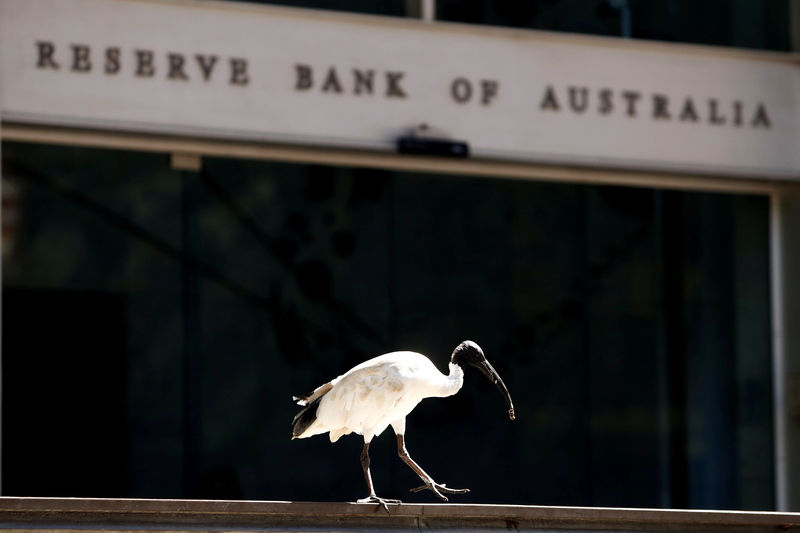(Corrects third bullet point to raise (not hold); no change to text of the story)
* New "stability and confidence" comment in RBA's May minutes
* New comment suggests RBA will hold rates at record lows for longer
* RBA sees little reason to raise rates as inflation, wage low
* No strong case for "near-term" adjustment in policy rates
By Swati Pandey
SYDNEY, May 15 (Reuters) - Damaging revelations of widespread misconduct in Australia's banking sector could hurt house price growth and household spending, the country's central bank said on Tuesday in a fresh signal that rates will stay at record lows for some time.
The Reserve Bank of Australia (RBA) inserted a new line in the minutes of its May policy meeting, saying "it would be appropriate to hold the cash rate steady and for the Reserve Bank to be a source of stability and confidence." noted that a further tightening in lending standards in Australia, particularly in the context of the current high level of public scrutiny of banks, was possible, which would affect household borrowing and spending," the RBA said.
Economists said the central bank may be trying to signal a steady policy path at a time when the quasi-judicial Royal Commission inquiry was unearthing years of malpractice and criminal behaviour at the country's largest financial firms. new comment in the minutes...suggests that the RBA isn't going to rock the boat by raising interest rates while the Royal Commission is questioning the behaviour of the banks," said Capital Economics chief economist Paul Dales.
"The new 'stability and confidence' comment imply that the RBA believes it has an extra role to play over and above setting policy according to the economic outlook."
The RBA last cut rates to a historical low of 1.5 percent in August 2016, notching up the longest period without a change in modern history. Financial markets are wagering the steady spell could last well into 2019.
Overall credit growth has already slowed since last year thanks to macroprudential measures, but banks are seen further battening down the hatches as the Royal Commission reveals dodgy lending practices.
In a speech ahead of the minutes, RBA Deputy Governor Guy Debelle said the inquiry has more of an implication for house prices than it does for the outlook for consumption. prices across Australia's major cities have been falling since late last year with a marked pullback in demand in the once red-hot markets of Sydney and Melbourne. FOR LONGER
The current economic outlook does not warrant higher interest rates, as inflation remains below target and likely to stay subdued in the face of sluggish wage growth, the RBA said.
Growth in Australia's A$1.8 trillion economy slowed to an annual 2.4 percent last year, in-part due to bad weather but the RBA has forecast activity to pick up to 3 percent or above over the next two years.
The RBA repeated that the board agreed there was not a "strong case" for a near-term adjustment in monetary policy.
Data out on Wednesday is likely to show wage growth stuck at record lows of around 2 percent, half the rate enjoyed by workers during the mining boom.
Debelle said there was a risk it may take a lower unemployment rate than currently expected to generate a sustained move higher.
Australia's jobless rate has remained stubbornly stuck around 5.5 percent and levels of underemployment - those already working but wanting more hours - are near historical highs, a major factor weighing on wages.
"How much longer is wages growth going to remain at its current low rates?" Debelle said in the speech.
"The experience of other countries with labour markets closer to full capacity than Australia's is that wages growth may remain lower than historical experience would suggest."
